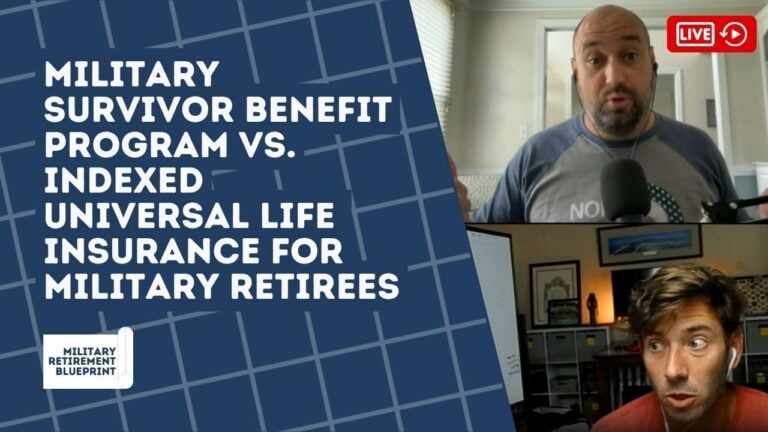SBP for Senior Military Leaders At Retirement and Transition
As a military retiree, you have dedicated years of your life to serving your country and now it is time to consider the best options for your retirement and transition. Unfortunately, there is a common misconception that the Survivor Benefit Plan (SBP) is the only option for military retirees, but this is not always the case. In this article, we will explore alternative solutions and provide valuable information to help senior military officers and NCOs make informed decisions about their retirement and transition.
Understanding the Survivor Benefit Plan (SBP)
The Survivor Benefit Plan (SBP) is a government-sponsored program designed to provide a monthly income to eligible survivors of military retirees. The program is designed to provide a portion of the retiree’s military pension to their surviving spouse or eligible dependents in the event of the retiree’s death. Although the SBP is a valuable resource, it may not be the best option for all military retirees, especially senior officers and NCOs.
The Limitations of the Survivor Benefit Plan (SBP)
While the Survivor Benefit Plan (SBP) may be a valuable resource for some military retirees, it does have its limitations. For example, the SBP does not provide a lump-sum payment and does not provide any benefits for surviving dependents who are over the age of 18. Additionally, the SBP does not provide any benefits for surviving spouses who are remarried after the retiree’s death. These limitations can be a concern for many military retirees, especially senior officers and NCOs who are in a unique position compared to other retirees.
The Alternative Solution: The Private Pension Method
The Private Pension Method is an alternative solution to the Survivor Benefit Plan (SBP) that has been designed specifically for senior military officers and NCOs. This solution provides a lump-sum payment to the retiree’s surviving spouse or eligible dependents in the event of the retiree’s death. The Private Pension Method also provides benefits for surviving dependents who are over the age of 18 and for surviving spouses who are remarried after the retiree’s death. This solution provides a level of flexibility and security that is not available with the Survivor Benefit Plan (SBP).
The Benefits of the Private Pension Method
The Private Pension Method provides several benefits that are not available with the Survivor Benefit Plan (SBP). For example, the Private Pension Method provides a lump-sum payment to the retiree’s surviving spouse or eligible dependents in the event of the retiree’s death. This payment can be used to pay for expenses such as funeral costs, outstanding debts, or any other expenses that may arise after the retiree’s death. Additionally, the Private Pension Method provides benefits for surviving dependents who are over the age of 18 and for surviving spouses who are remarried after the retiree’s death. This solution provides a level of flexibility and security that is not available with the Survivor Benefit Plan (SBP).
How to Make an Informed Decision About Your Retirement and Transition
Making an informed decision about your retirement and transition is essential for senior military officers and NCOs. To make an informed decision, you need to understand the limitations of the Survivor Benefit Plan (SBP) and explore alternative solutions such as the Private Pension Method. Additionally, it is important to consult with a financial advisor who has experience working with military retirees. A financial advisor can help you understand your options and make an informed decision about your retirement and transition.
Conclusion
Retirement and transition are important milestones in the lives of senior military officers and NCOs. To ensure that you make an informed decision, it is essential to understand the limitations of the Survivor Benefit Plan (SBP) and explore alternative solutions such as the Private Pension Method. The Private Pension Method provides a level of flexibility and security that is not available with the SBP and is specifically designed for senior military officers and NCOs. By consulting with a financial advisor and exploring your options, you can make an informed decision about your retirement and transition that will provide peace of mind for you and your loved ones. Schedule a Call with us today.
Unlock the full potential of your retirement with our Military Retirement Blueprint video series. With 25 micro-lessons, you'll have access to the expert knowledge and strategies you need to maximize your financial, health, and lifestyle opportunities. Furthermore, you will have exclusive access to our specialized knowledge library designed specifically for military retirees who are or will become high-income earners. It's a new and better alternative to "Benefits & Transition Assistance." Don't miss out on this valuable opportunity - start your FREE trial now and gain access to our insiders portal. Invest in your future and take control of your retirement today! Visit https://militaryretirementblueprint.com/








